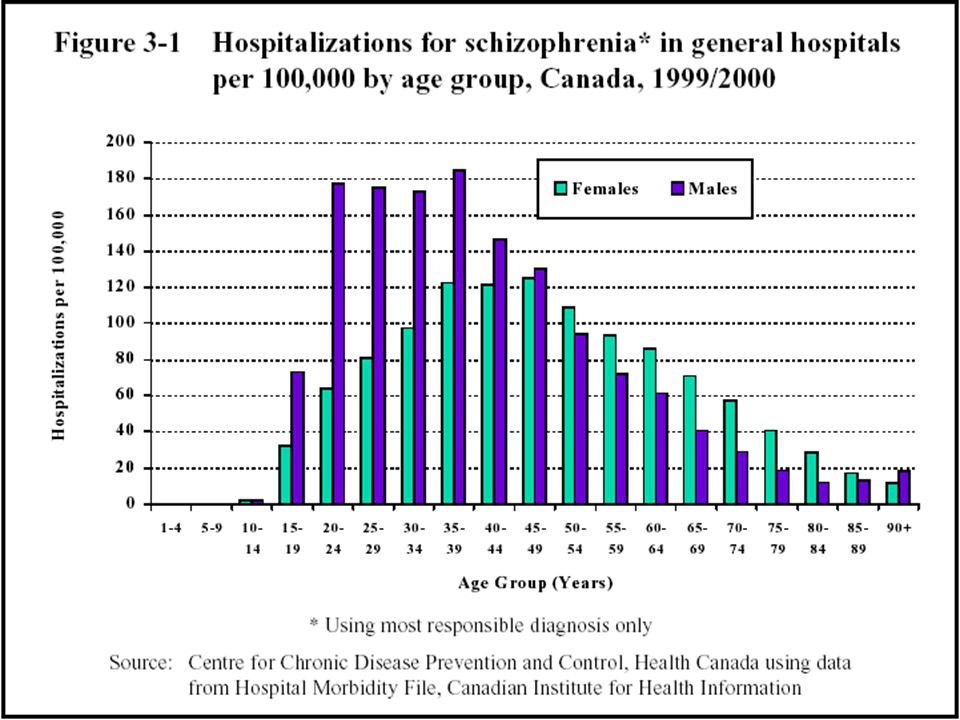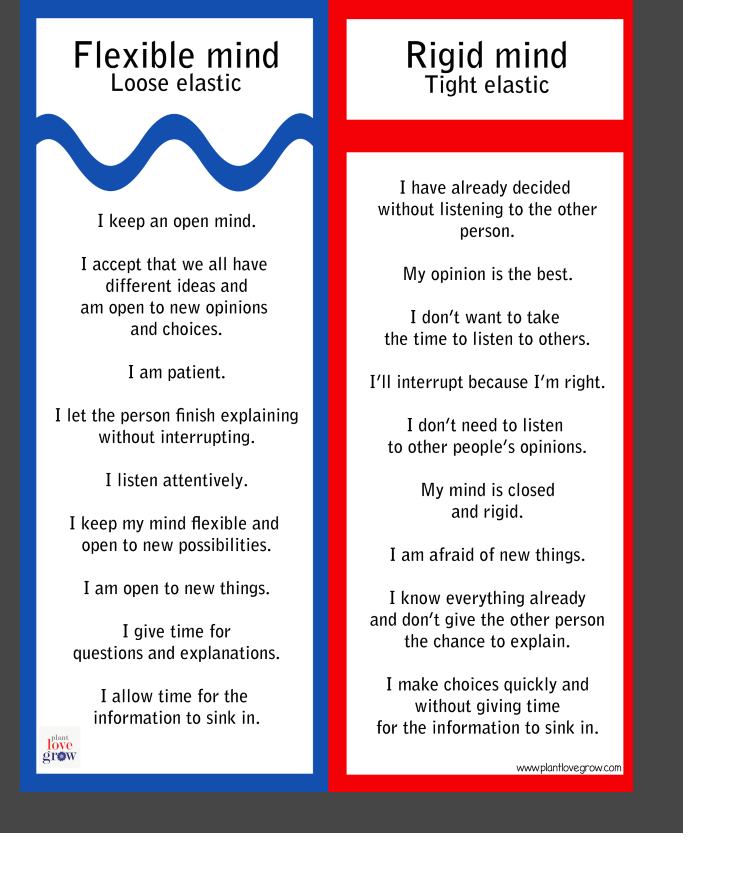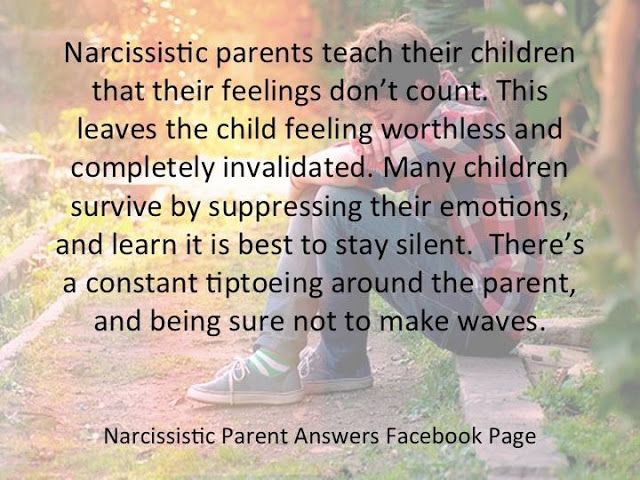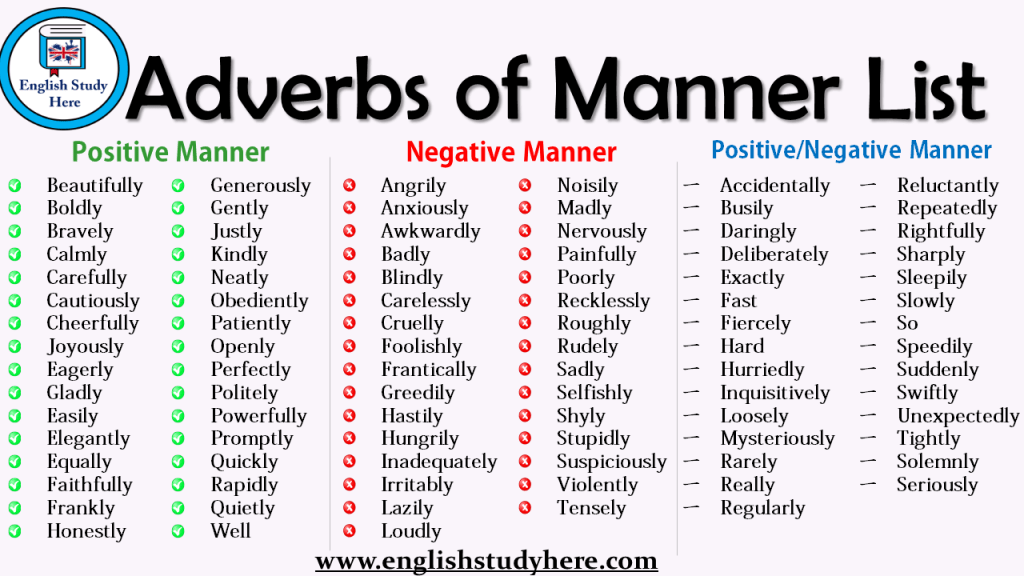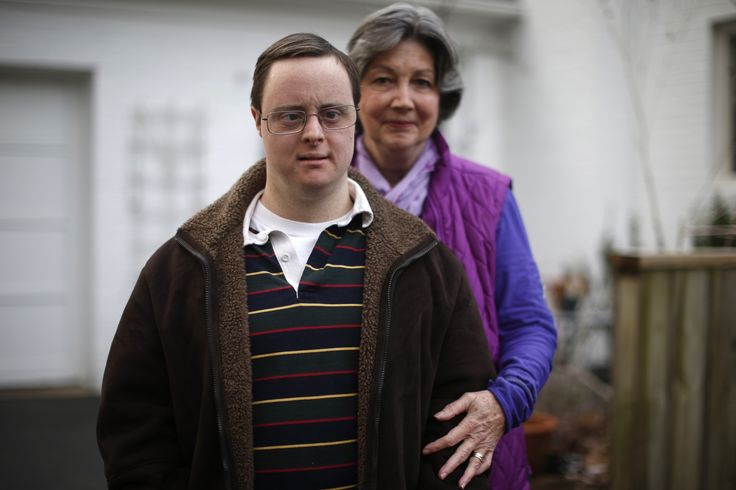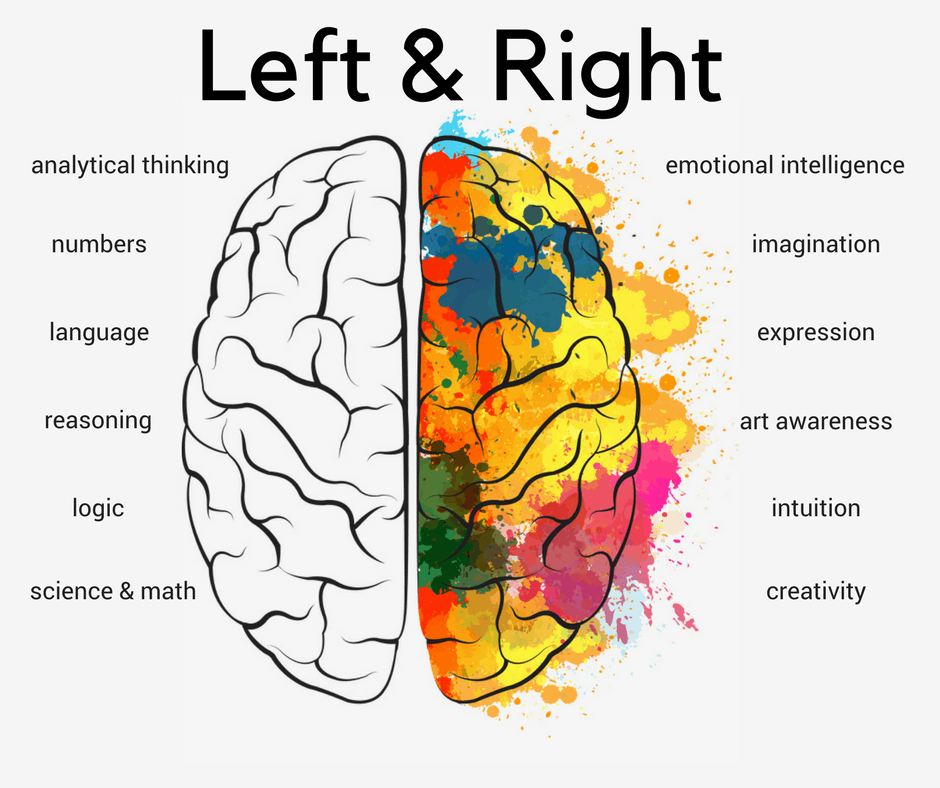Difference between schizophrenia and psychosis
Psychosis vs. Schizophrenia: Understanding the Difference
Psychosis and schizophrenia are two terms that you may have heard used together. However, while these terms are related, they describe two unique conditions.
Psychosis describes when a person has lost touch with reality. It’s actually one of several symptoms of schizophrenia, a mental health disorder. However, people can also have psychosis without schizophrenia.
Keep reading to learn more about both psychosis and schizophrenia, how they’re connected, and how each condition is treated.
Psychosis describes a collection of symptoms that show a loss of touch with reality. Psychosis may be caused by many things, including:
- mental health disorders
- substance use
- other medical conditions
Schizophrenia is one of several psychotic disorders. These are mental health disorders that include periods of psychosis. In addition to psychosis, schizophrenia may include other symptoms, such as:
- disorganized thinking
- difficulties in speech and movement
- changes in emotional responding, like flat affect
Psychosis is a group of symptoms that indicate a loss of touch with reality. The National Institute of Mental Health (NIMH) estimates that there are about 100,000 new cases of psychosis in the United States each year.
There are two main symptoms of psychosis:
- Hallucinations. Hallucinations are when someone hears, sees, or feels things that aren’t occurring outside of their mind. For example, someone experiencing psychosis may hear voices when no one else is around.
- Delusions. Delusions are intense, false beliefs that aren’t shared by others. For example, a person experiencing psychosis may believe that others are conspiring to harm them when all available evidence points to the contrary.
When someone experiences psychosis, they’re said to be having a psychotic episode. Several changes in behavior can occur before a psychotic episode happens. Some examples can include:
- difficulty concentrating or thinking clearly
- a noticeable drop in performance at a job or in school
- increased suspiciousness or uneasiness
- withdrawal from others
- a decline in personal hygiene
- trouble distinguishing between reality and fantasy
Several things can cause psychosis to occur. These include:
These include:
- mental health disorders, which can include:
- psychotic disorders, such as schizophrenia, schizoaffective disorder, and delusional disorder
- bipolar disorder
- severe depression or anxiety
- substance use, including drug and alcohol misuse, especially for long-term periods of use
- sleep deprivation
- medical conditions, such as:
- dementia, including Alzheimer’s disease
- Parkinson’s disease
- Huntington’s disease
- multiple sclerosis
- lupus
- some types of epilepsy
- traumatic brain injury
- brain tumors
- HIV/AIDS
- syphilis
- some types of drugs, such as corticosteroids, drugs used to treat Parkinson’s disease, and some types of antibiotics
Schizophrenia is a mental health disorder, one of several psychotic disorders. NIMH estimates that the prevalence of schizophrenia and related disorders in the United States is between 0.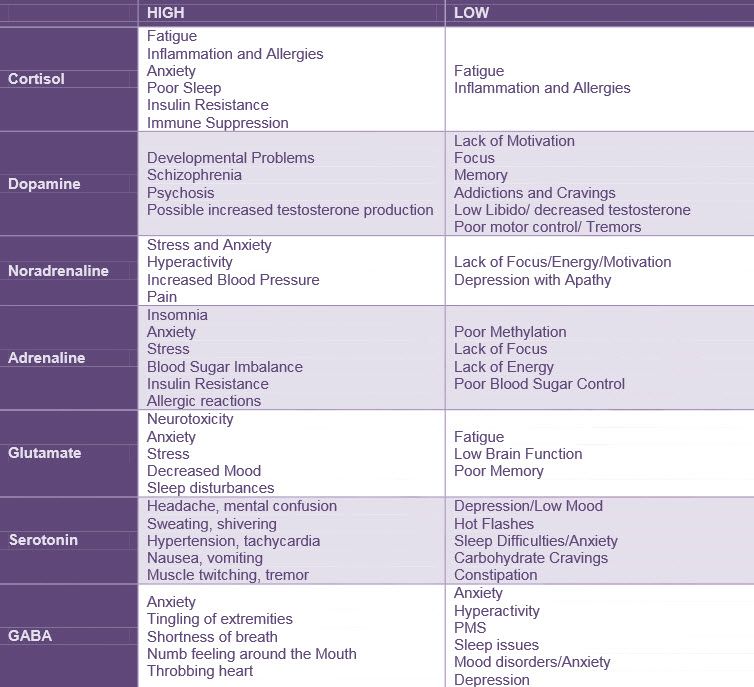 25 and 0.64 percent.
25 and 0.64 percent.
The symptoms of schizophrenia can be divided into three categories:
- Psychotic symptoms. These include symptoms of psychosis, such as hallucinations and delusions. You may also see these symptoms referred to as positive symptoms.
- Negative symptoms. The negative symptoms of schizophrenia include things like:
- low motivation to initiate or continue activities or conversations
- reduced emotions through facial expressions or tone of voice (flat affect)
- a decline in feelings of happiness or pleasure in daily life
- social withdrawal or being uncomfortable around others
- lack of speech, restricted behaviors, or isolation
- Cognitive symptoms. Individuals with schizophrenia can also have difficulty with things like concentration, memory, and attention.
Schizophrenia is a complex condition and what exactly causes it is unknown. Experts believe that irregularities with various neurotransmitters, particularly dopamine, are involved. Genetics and various environmental factors also likely play a role.
Experts believe that irregularities with various neurotransmitters, particularly dopamine, are involved. Genetics and various environmental factors also likely play a role.
An individual with schizophrenia can experience periods of psychosis. During this time, they may have hallucinations and delusions. The psychotic symptoms of schizophrenia are also called positive symptoms.
Antipsychotic medications are used to treat acute psychotic episodes in people with schizophrenia. Additionally, these medications can also be used as maintenance medications to help prevent symptoms from coming back.
A diagnosis of schizophrenia can sometimes follow a psychotic episode. However, schizophrenia has some additional symptoms as well as specific diagnostic criteria.
A person can experience psychosis without having schizophrenia or another mental health disorder. Psychosis can occur due to things like substance use, medical conditions, and certain medications.
Treatment is most effective when psychosis is identified and treated early.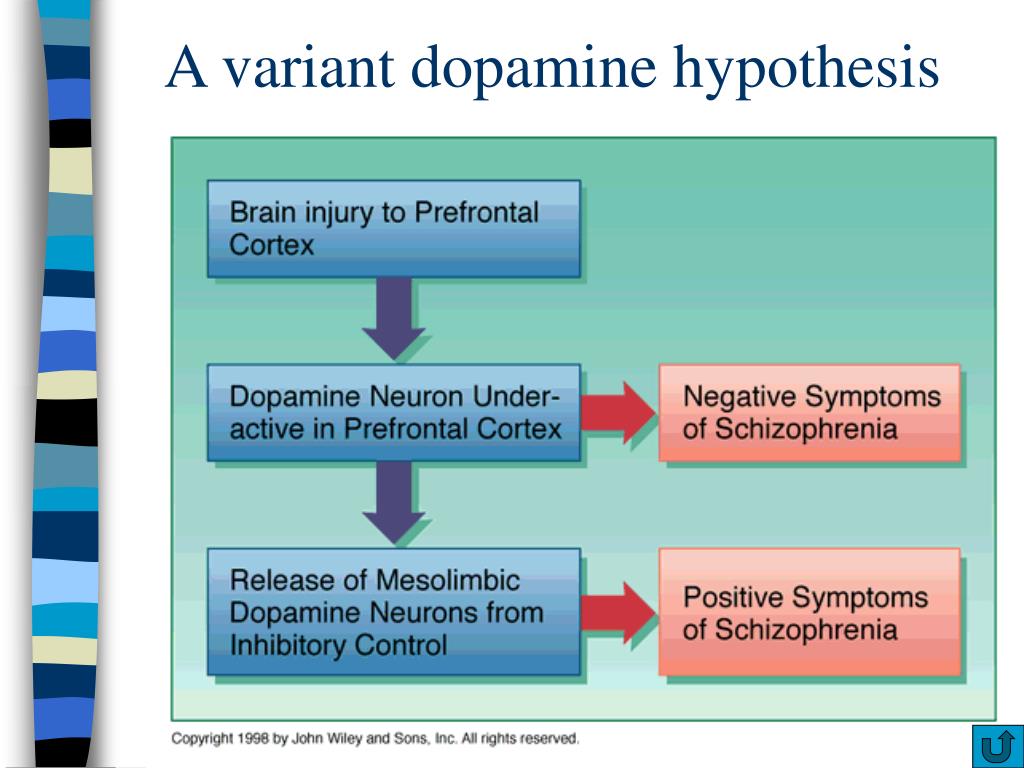 The treatment of psychosis typically includes a combination of the following:
The treatment of psychosis typically includes a combination of the following:
- Medications. Antipsychotic medications can help to reduce the symptoms of psychosis. These medications can be given as either a pill or an injection.
- Therapy. Therapy for psychosis often consists of cognitive behavioral therapy (CBT) provided by a mental health professional. It may be provided in an individual or group setting. CBT in this case is specifically tailored to symptoms of psychosis or schizophrenia.
- Family support. Family members are also key in treating psychosis. It’s important for them to learn more about psychosis and how to interact effectively and empathetically with their loved one.
- Social support. Someone experiencing psychosis may benefit from social skills training or help with returning to work or school.
Additionally, since a variety of other underlying conditions can also cause psychosis, working to manage those conditions can also help to ease symptoms.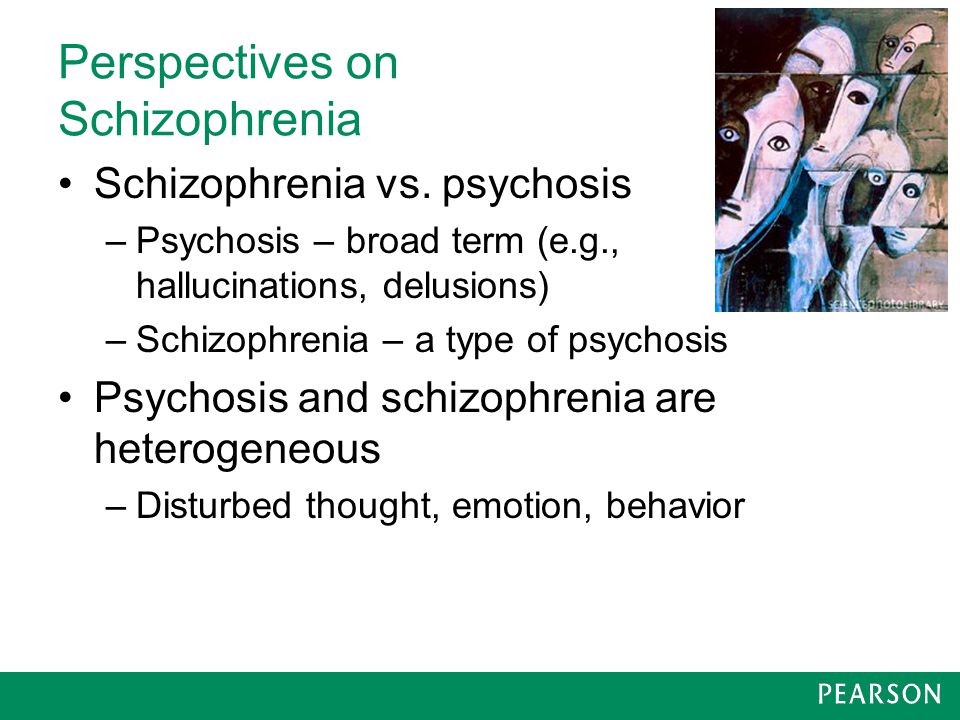
Schizophrenia is a chronic condition for which there’s no cure. As such, treatment focuses on managing symptoms and building coping skills for daily life and functioning. It can include a combination of the following treatments:
- Medications. Antipsychotic medications can help with the psychotic (positive) symptoms of schizophrenia. These include medications to treat acute psychosis, followed by maintenance medications to help prevent symptoms from returning.
- Therapy. Therapy, which can include CBT, is an important part of treatment. A mental health professional can also help a person with schizophrenia develop coping strategies and teach them how how to recognize signs of a recurrence.
- Family support. It’s important that family members learn about schizophrenia and how to support their loved one. Making sure the loved one is taking medication and noting signs of recurrence are also vital.
- Social support.
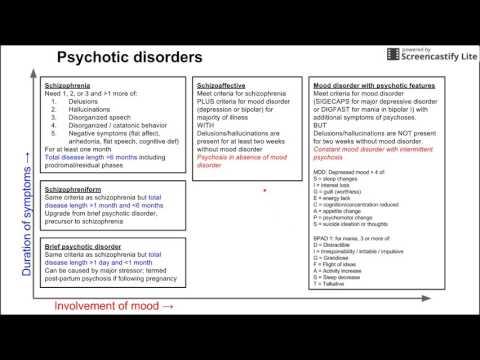 Similar to psychosis, people with schizophrenia can benefit from social support services. These services can help with returning to school or work, improving social skills, and coping with stress and everyday challenges.
Similar to psychosis, people with schizophrenia can benefit from social support services. These services can help with returning to school or work, improving social skills, and coping with stress and everyday challenges.
Schizophrenia is also associated with several comorbid conditions. These are conditions that can occur along with schizophrenia and can include:
- depression
- anxiety disorders
- obsessive-compulsive disorder (OCD)
- substance use disorders
- cardiovascular disease
- diabetes
Comorbid conditions can have a significant impact on the overall health and well-being of people with schizophrenia. Because of this, management of these conditions is another important aspect of schizophrenia treatment.
Psychosis is a condition in which someone has lost touch with reality. Its two main symptoms are hallucinations and delusions. Psychosis can have several causes, such as mental health disorders, medical conditions, or substance use.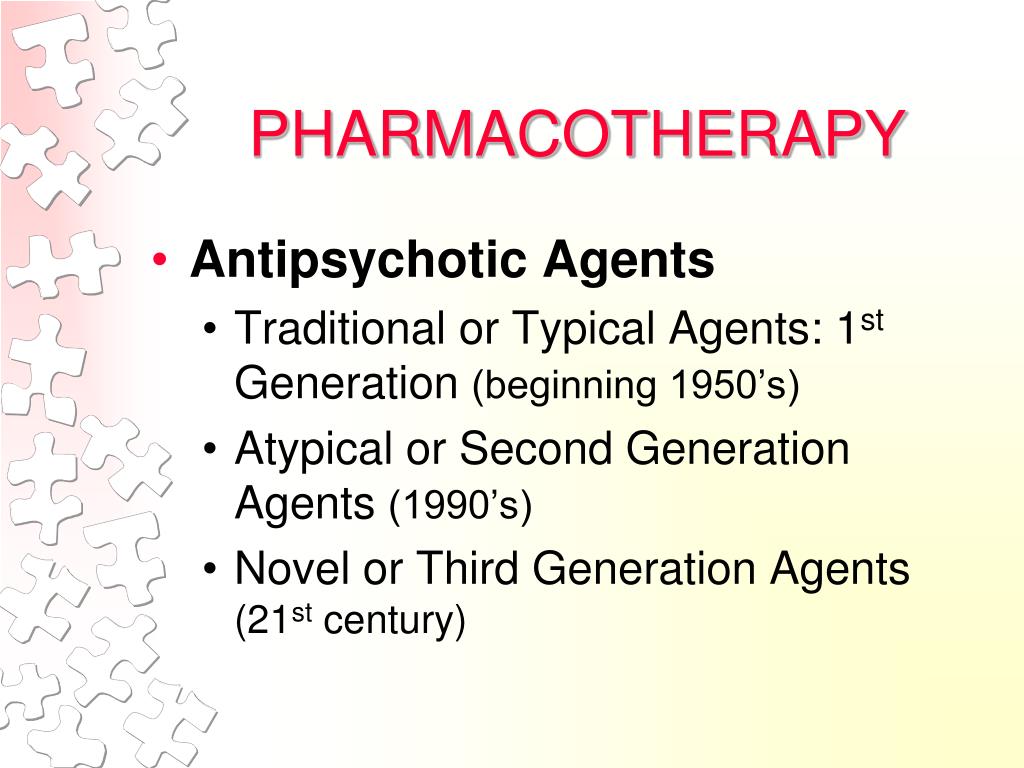
Schizophrenia is a mental health disorder that includes periods of psychosis. People living with schizophrenia also have additional symptoms, such as negative and cognitive symptoms.
Treatment options for psychosis and schizophrenia are generally similar. Early diagnosis and treatment can greatly improve your outlook, so be sure to seek medical attention if yourself or a loved one has signs of psychosis or schizophrenia.
How Is Psychosis Different From Schizophrenia?
Schizophrenia is most well-known condition that involves psychosis, but psychosis can arise in other mental health conditions, too.
While the word “psychotic” is often used in a stigmatizing context, there is no the term “psychosis” actually comes from the Greek word “psyche,” a word that describes the mind or soul.
You might experience an episode of psychosis for various reasons, including as part of schizophrenia, bipolar disorder, major depressive disorder, or dementia.
Psychosis is not the same as psychopathy.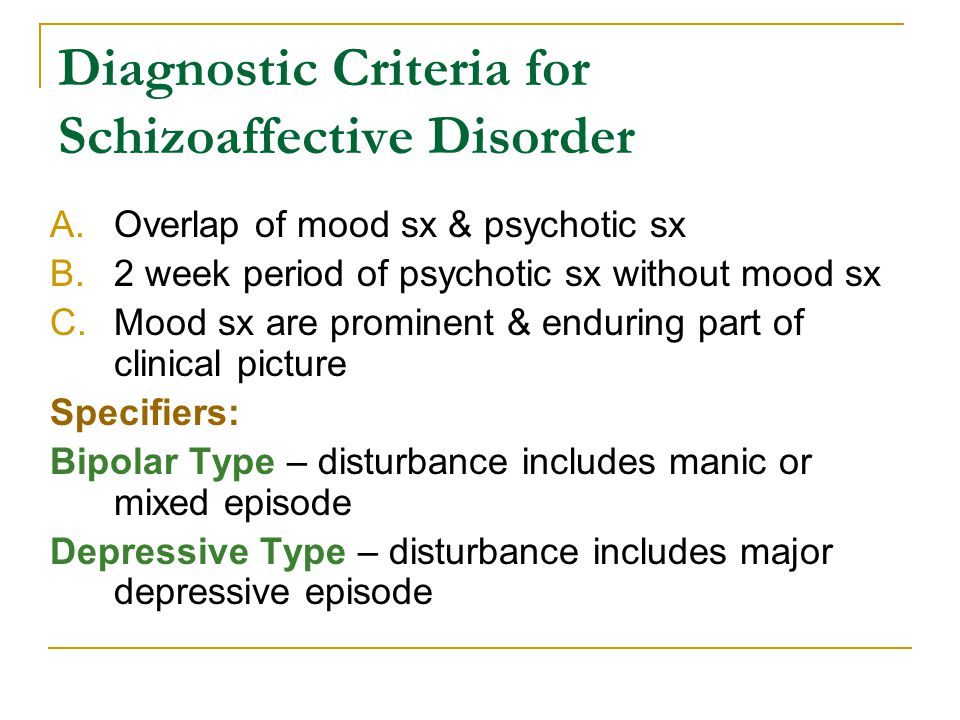 Psychosis is a symptom of mental health conditions like schizophrenia.
Psychosis is a symptom of mental health conditions like schizophrenia.
Schizophrenia is classified in the Diagnostic and Statistical Manual of Mental Disorders, 5th edition (DSM-5) as a psychotic disorder.
Psychotic disorders are conditions that involve symptoms like:
- delusions
- hallucinations
- disorganized thinking and speech
- disorganized motor behavior
- negative symptoms (e.g., limited emotional expression)
Positive and negative symptoms of psychotic disorders
- Positive symptoms: Symptoms that add to existing functionality (hallucinations, delusions, disorganized speech).
- Negative symptoms: Symptoms that involve a loss of functionality (decreased pleasure, lack of emotional expression).
Schizophrenia is one of the most common forms of psychotic disorder, but you can also experience psychosis for other reasons.
Psychosis itself isn’t a diagnosis.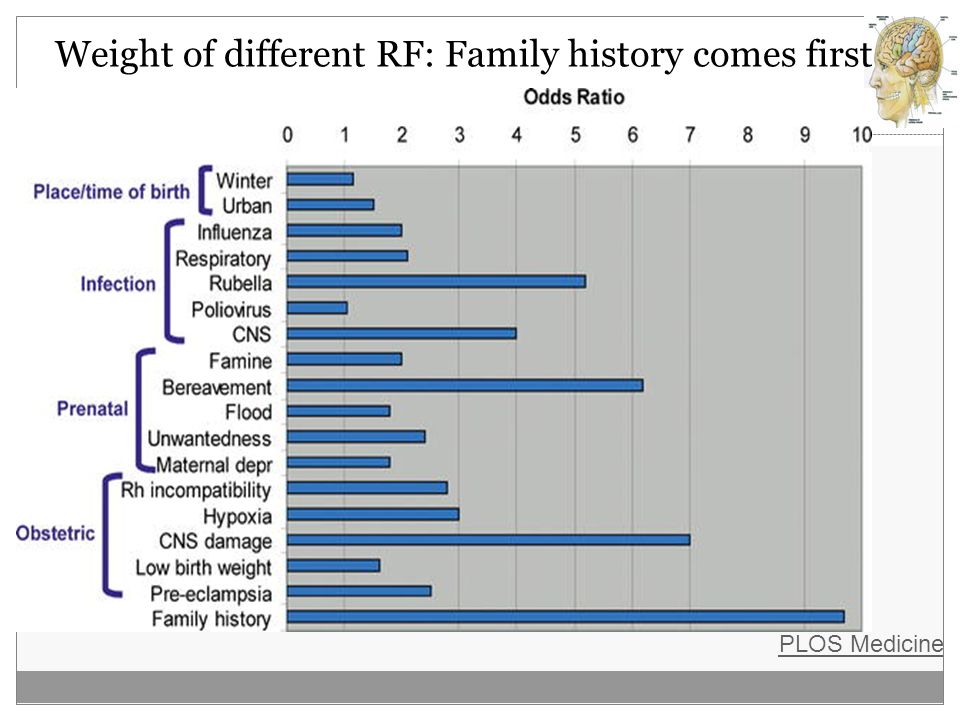 The experience involves a lapse in your perception of reality. It’s a period where your mind is unable to tell the difference between fact and fiction.
The experience involves a lapse in your perception of reality. It’s a period where your mind is unable to tell the difference between fact and fiction.
Psychosis can be a symptom of a mental health disorder.
According to the DSM-5-TR, most psychotic disorders involve positive symptoms of psychosis.
During an episode of psychosis, these can include:
- Delusions . A belief in things that are untrue, irrational, or inconsistent with your culture.
- Hallucinations. These are sensory experiences that occur without stimulus.
- Disorganized speech and thinking. This involves communication that may be difficult for others to follow or understand.
- Disorganized motor behavior: This is unpredictable behaviors and movements.
With schizophrenia, you can also experience negative symptoms.
These may include:
- Diminished emotional expression. This may involve reduced eye contact, slack facial expression, and emotionless speech.
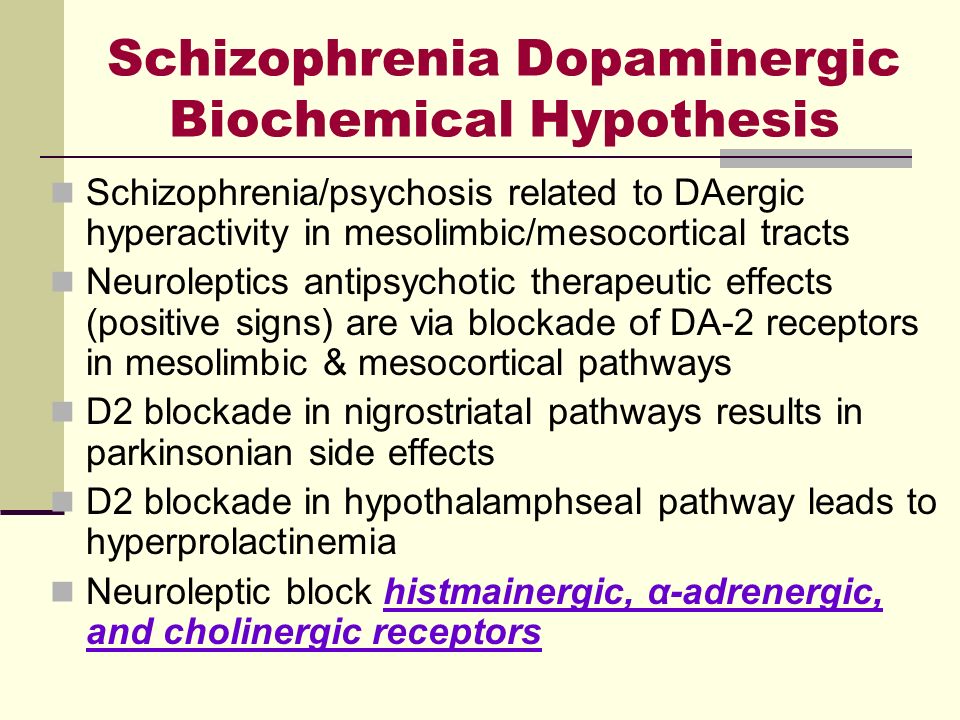
- Avolition. This may involve a lack of motivation or inability to get started on tasks.
- Anhedonia. This involves the inability to feel pleasure.
- Alogia. This may involve being quiet and unresponsive.
- Asociality. This involves a limited interest in social interactions.
Psychosis as a symptom
Experiencing one episode of psychosis doesn’t mean you have a lifelong mental health condition.
According to the National Mental Health Institute (NIMH), almost 3 out of every 100 people experience psychosis at some point in life. Episodes can be isolated or the symptom of a long-term condition.
Psychotic disorders that can cause psychosis include:
- schizophrenia
- schizophreniform disorder
- schizoaffective disorder
- delusional disorder
- brief psychotic disorder
- substance or medication-induced psychotic disorder
Outside of psychotic disorders, other mental health conditions that can involve psychosis include:
- bipolar disorder
- post-traumatic stress disorder (PTSD)
- severe forms of major depressive disorder
- postpartum psychosis
- borderline personality disorder
You can even develop psychosis because of changes in your brain that result from:
- stroke
- traumatic brain injury
- tumors
- dementia
- sleep disorders
- epilepsy
- Parkinson’s disease
When is psychosis considered schizophrenia?
Psychosis becomes part of a mental health diagnosis when it meets certain criteria.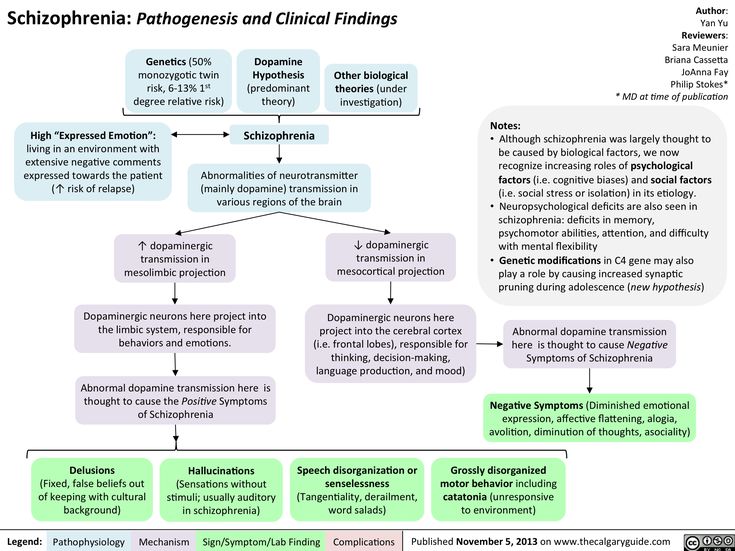
For schizophrenia, the DSM-5-TR says that you must have two or more symptoms for a significant amount of time during a 1-month period. Signs must also be present for at least 6 months.
Of the symptoms, one must be:
- delusions
- hallucinations
- disorganized speech
Like all disorders in the DSM-5-TR, doctors diagnose schizophrenia when it interferes with major parts of your life, like:
- personal care and hygiene
- relationships
- school or work
Psychosis or imagination?
So how do you know the difference between imagining something and experiencing psychosis?
When you experience psychosis, your brain isn’t able to recognize the altered perception of reality. You believe what you’re hearing, feeling, tasting, or seeing.
It feels very real.
Imagination is the ability to willfully manifest a potential sensory event based on past experiences. When you’re imagining something, you’re aware you’re doing it.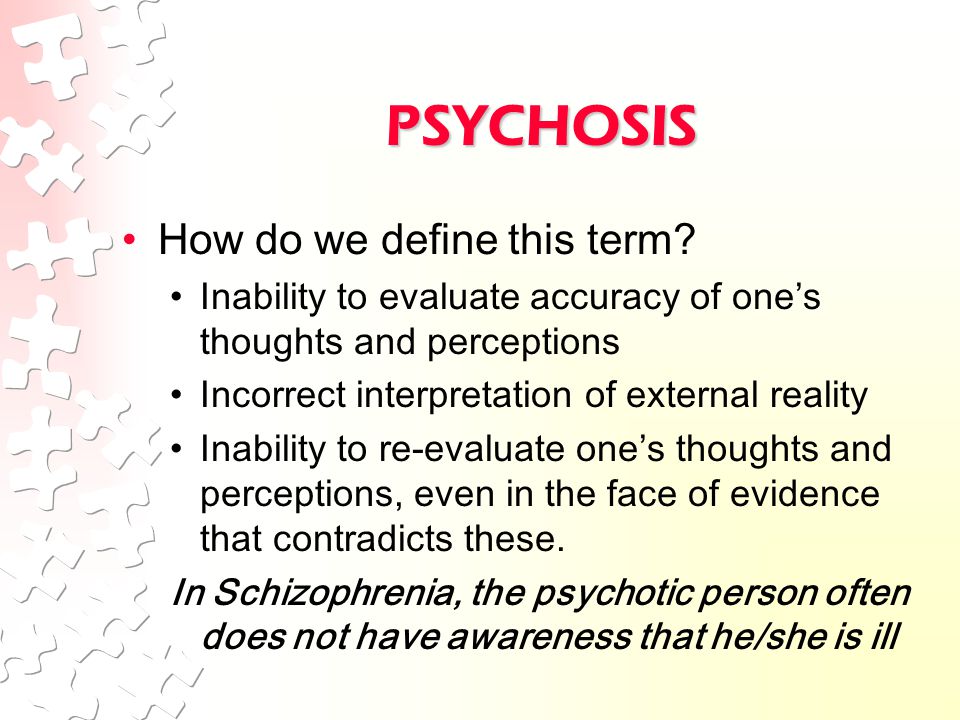
Treatment for psychosis and schizophrenia can differ.
Psychosis
Treatment for psychosis will depend on why you’re experiencing these types of symptoms.
Regardless of the cause, treating psychosis as early as possible will likely result in a better outcome.
Early warning signs of psychosis
- hearing, seeing, or feeling things that aren’t there
- mood swings or lack of emotion
- social withdrawal
- lack of hygiene and personal care
- difficulty thinking or concentrating
- unusual thoughts and beliefs that you can’t dismiss
A common first-line treatment approach for early psychosis is called coordinated specialty care (CSC). CSC is a holistic treatment plan that incorporates:
- psychotherapy
- medication
- lifestyle support
- family education
Specific treatments will depend on why you’re experiencing psychosis. Often, treatment will involve a form of cognitive-behavioral therapy (CBT), which aims to change unhelpful thought patterns and behaviors.
Psychosis treatment may also involve medications called antipsychotics. These can help limit the intensity of hallucinations, delusions, and other symptoms.
If your psychosis is related to a physical condition, treatment may involve addressing the underlying cause.
In some cases, like with substance-induced psychosis, a psychotic episode can be temporary. Once the effects of the substance wear off, your symptoms will go away.
Schizophrenia
Schizophrenia is a lifelong mental health condition. But it’s possible to manage the condition.
Schizophrenia treatment involves:
- psychotherapy
- psychosocial interventions
- medication
Your doctor may prescribe first or second generation antipsychotic medications based on the severity of your symptoms.
First-generation antipsychotics work primarily on your dopamine system, while second-generation medications target dopamine and serotonin.
Examples of first-generation medications include:
- chlorpromazine (Thorazine)
- loxapine (Loxitane)
- haloperidol (Haldol)
- fluphenazine (Proxlixin)
Examples of second-generation medications include:
- clozapine (Clozaril)
- aripiprazole (Abilify)
- asenapine (Saphris)
While medications can help calm symptoms, your doctor may also recommend:
- cognitive-behavioral therapy (CBT)
- supportive psychotherapy
- cognitive enhancement therapy
Additionally, your doctor or healthcare team may recommend the following complementary therapies:
- assertive community treatment (ACT)
- peer group support
Because schizophrenia is a lifelong condition, you may find it helpful to develop new life skills and coping mechanisms for everyday life.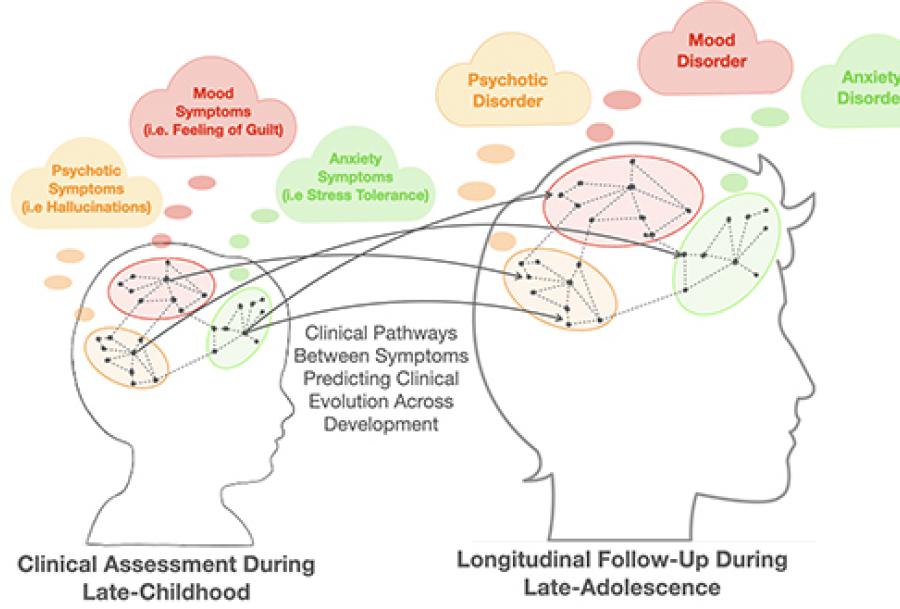
Psychosis and schizophrenia aren’t the same things.
Psychosis is an experience that involves a disruption in your interpretation of reality. Schizophrenia is a mental health condition involving symptoms like psychosis.
You can experience psychosis because of a number of mental and physical conditions. And the intensity and duration of an episode depends on the underlying cause.
If you’re seeing, hearing, or touching things that aren’t there, or feel like your thoughts are becoming skewed, speaking with a mental health professional may help.
To learn more about psychosis and schizophrenia, or to find resources in your area, consider talking with a qualified mental health representative at any time by calling the SAMHSA National Helpline at 1-800-662-4357.
SAMHSA also offers an Early Serious Mental Illness (ESMI) Treatment Locator, allowing you or your loved ones to locate CSC programs in your area.
How psychosis differs from schizophrenia - AMO
Reading time: 2 min.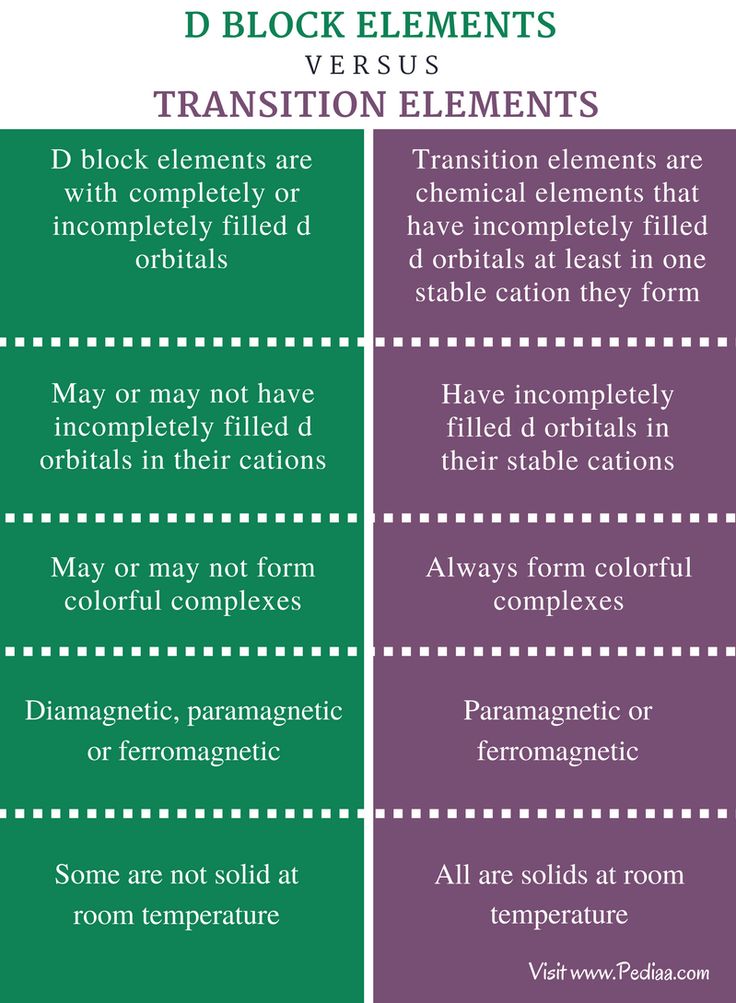
Schizophrenia and psychopathy are hot topics in many media sources, but both terms are often misused by people. This causes misunderstanding both among the population in general and among those who suffer from mental disorders and understand how one of them differs from the other.
Both diseases have a common feature: the peak of their development falls on the age of 15 to 24 years. In total, there are about 21 million people in the world who suffer from schizophrenia. Men and women get sick in about the same proportion, but men have a much greater risk of getting sick for life.
Psychosis and its possible differences from schizophrenia
Both terms can refer to the same mental state, but their usage sometimes differs. In psychiatric science, psychosis is understood as a number of false sensations of a person, in the form of delusions and hallucinations:
- tactile;
- visual;
- auditory.
These manifestations do not correspond to reality, but occur in the patient's brain.
Psychosis is an integral part of many mental illnesses, for example:
- schizophrenia;
- schizoaffective personality disorder;
- bipolar disorder;
- post-traumatic disorder.
However, only one psychosis should not be considered as the main diagnostic criterion for the same schizophrenia: here they need at least several. In any case, further research needs to be done.
Some clinical cases of psychosis are associated with the use of drugs, alcohol or psychoactive substances. As soon as the effect of the drug ends, the symptoms of acute psychosis also disappear. In the case of drugs, the situation is more complicated: amphetamines, cocaine and methamphetamines, to which a person is physically addicted, are known to help maintain a longer psychotic effect.
Also, psychosis can occur due to:
- fatigue;
- injuries;
- infectious diseases arising in the brain.
What is schizophrenia
Schizophrenia should be understood as a complex of severe psychiatric symptoms with visual or auditory hallucinations and behaviors that are commonly called antisocial, in the form of:
- involuntary movements;
- indistinct turns of speech;
- inability to understand another person's speech, etc.

Sometimes with schizophrenia, a condition such as a catatonic stupor occurs: the patient completely loses contact with the external environment. The opposite of stupor is catatonic arousal.
Other symptoms of schizophrenia include, for example, delusions of persecution or grandeur, which are very common in patients. It is known that schizophrenia can be provoked by external factors, both social and genetic.
Schizophrenia is an organic mental disorder, in other words, it can be defined morphologically. When the brain is examined, the shape of its ventricles turns out to be altered, coupled with low neural activity in the language and cognitive area.
Clear differences between schizophrenia and psychosis
Psychoses appear sporadically, and not a single person is immune from them: for example, psychosis may appear due to severe fatigue or a stressful situation. When the episodes of psychosis are of a permanent nature, follow one after another, and the content of the voices is approximately the same in them, we are most likely talking about schizophrenia or schizotypal personality disorder.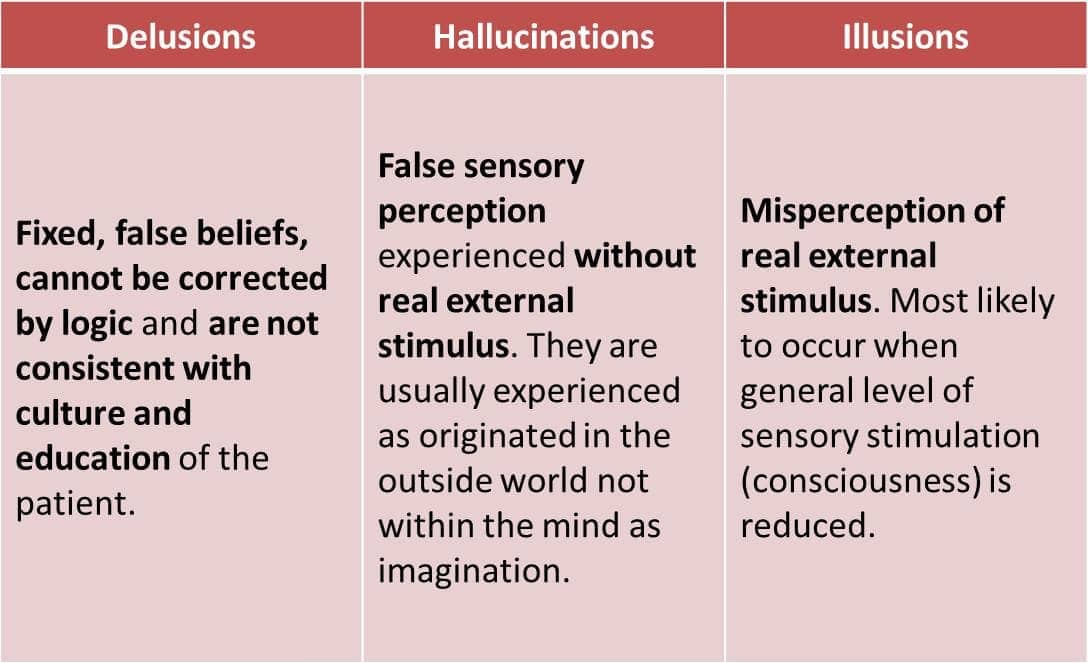
In addition, psychoses can accompany other mental disorders, so it is not objective to immediately consider it a sign of schizophrenia: in this case, one should focus on a longer and clearer clinical picture.
Like the material?
Your mail
I agree with the privacy policy
Don't forget to subscribe to our Yandex.Zen!
Differences between schizophrenia and psychosis
The field of psychology and psychology is extremely broad, and sometimes there are concepts that are often exchanged even if they have nothing to do with it. Many people often confuse the terms schizophrenia and psychosis. However, these are two disorders that, despite some similarities, are clearly distinct in their common characteristics.
Then I'm going to describe both terms more clearly so that you can easily distinguish between them.
Index
- 1 What is meant by psychosis
- 2 Schizophrenia
- 3 Differences between schizophrenia and psychosis
What is meant by psychosis
various changes in thinking. Schizophrenia and bipolar disorder were first included in this disorder. The scope of psychosis is very broad, and its most common manifestations include hallucinations and delusions. As for the possible causes of psychosis, it may be due to various changes in the brain or excessive use of substances such as drugs or alcohol. Psychotic disorders may include schizophrenia, catatonia, or psychosis due to various medical conditions.
Schizophrenia
This is a psychotic disorder that causes various delusions and hallucinations in a person. Schizophrenia generates a certain amount of social rejection and the patient ends up suffering from depression and anxiety.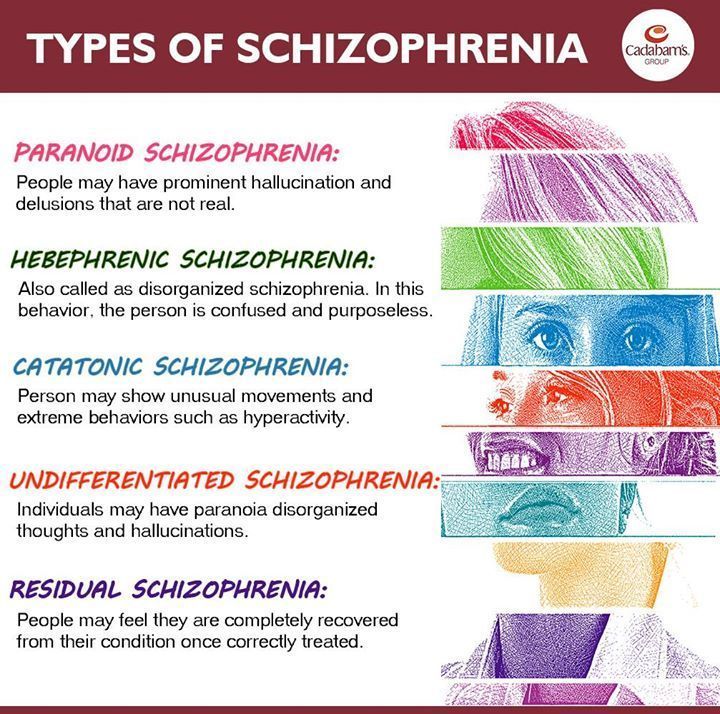 The treatment of schizophrenia is based on the use of various drugs, and in the most severe cases, the patient may be hospitalized. For a person to be diagnosed with this problem, they must have had episodes of delusions or hallucinations for at least 6 months.
The treatment of schizophrenia is based on the use of various drugs, and in the most severe cases, the patient may be hospitalized. For a person to be diagnosed with this problem, they must have had episodes of delusions or hallucinations for at least 6 months.
Differences between schizophrenia and psychosis
Although these are two very similar concepts, you should know that schizophrenia is nothing but a mental disorder with a number of very specific characteristics, while psychosis is a group of symptoms that, among other things, can be caused by schizophrenia. A psychotic may be caused by a disorder such as schizophrenia. although it can also be associated with excessive use of substances such as drugs, so psychosis does not always mean schizophrenia.
Psychosis can last seconds or minutes due to drug use, or it can last over time, as in schizophrenia. Mild psychosis usually lasts a maximum of a month, while schizophrenia is chronic and lasts a lifetime.